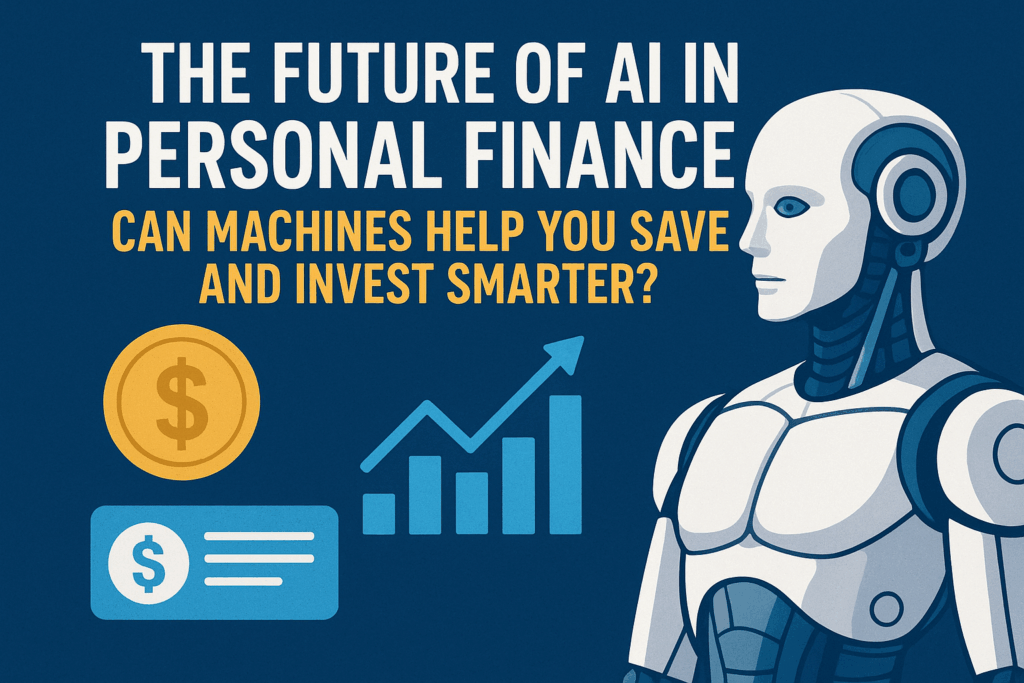
Introduction
Technology is reshaping every aspect of our lives, and nowhere is this more evident than in the world of money management. Artificial Intelligence (AI) is no longer a futuristic concept reserved for banks and hedge funds. Today, everyday people are beginning to rely on AI-powered apps, chatbots, and robo-advisors to handle their personal finances. From budgeting to investments, AI tools are promising to make money management smarter, faster, and more efficient.
But the big question remains: Can we really trust AI to guide our financial decisions?
- Understanding AI in Personal Finance
AI in personal finance refers to the use of machine learning, natural language processing, and automation to analyze spending habits, predict financial trends, and recommend actions that improve financial health. Unlike traditional banking tools, AI learns from your data and becomes more accurate over time.
Examples include:
Budgeting apps like Cleo and Mint using AI to categorize and analyze spending.
Robo-advisors such as Betterment and Wealthfront offering investment guidance.
Fraud detection systems powered by AI to keep your accounts safe.
- How AI Helps Save Smarter
Saving money is one of the hardest habits to maintain, but AI is making it easier by introducing personalized automation.
Automated savings apps like Digit analyze income and expenses, then transfer small amounts into savings automatically without impacting daily needs.
AI can send real-time alerts about unnecessary subscriptions or overspending.
Smart assistants can suggest tailored savings goals (e.g., for emergencies, vacations, or retirement).
This personalization helps people save consistently without feeling deprived.
- How AI Transforms Investing
Investing has traditionally been seen as a game for professionals. AI, however, is democratizing the process:
Robo-advisors use algorithms to create diversified investment portfolios based on risk tolerance.
AI-powered trading platforms analyze massive datasets quickly to identify market opportunities.
Predictive analytics help individual investors understand potential risks before investing.
For beginners, this means access to strategies once reserved for the wealthy. For professionals, it means more efficient and data-backed decision-making.
- Benefits of AI in Personal Finance
24/7 availability: AI assistants work round the clock, unlike human advisors.
Lower costs: Robo-advisors often charge less than traditional financial planners.
Personalization: AI tailors recommendations to individual financial behavior.
Speed: Data analysis and recommendations are instant.
- Risks and Challenges of AI in Finance
While AI offers incredible opportunities, it’s not without risks:
Data privacy: AI relies on personal financial data, making security critical.
Over-reliance: Depending solely on AI may limit human judgment in money matters.
Algorithm bias: AI tools can be biased if trained on limited datasets.
Lack of emotional intelligence: AI cannot fully understand personal circumstances like job insecurity or family obligations.
- Real-Life Examples of AI in Personal Finance
Plum (UK): An AI-powered app that helps users save, invest, and budget automatically.
Chime (US): Uses AI-driven features like fee-free overdrafts and smart savings.
Kuda Bank (Nigeria): Offers AI-based budgeting tools for African consumers.
Wealthsimple (Canada): A robo-advisor providing tailored investment portfolios.
These examples prove that AI is becoming part of everyday financial life across the globe.
- The Future of AI in Personal Finance
Looking ahead, AI will become even more advanced in personal finance:
Voice-activated financial assistants integrated into smart homes.
AI-driven credit scoring systems offering fairer lending opportunities.
Blockchain + AI partnerships ensuring transparency in digital payments.
Hyper-personalized financial coaching where AI acts like a digital financial advisor who knows your habits better than you do.
Conclusion
AI is transforming personal finance from a complex, overwhelming task into an intelligent, personalized experience. While risks such as data privacy and over-reliance must be managed, the benefits are undeniable. From savings to investing, AI is already proving that machines can indeed help us make smarter financial decisions.
The real key lies in balance: using AI tools to complement human judgment, not replace it.